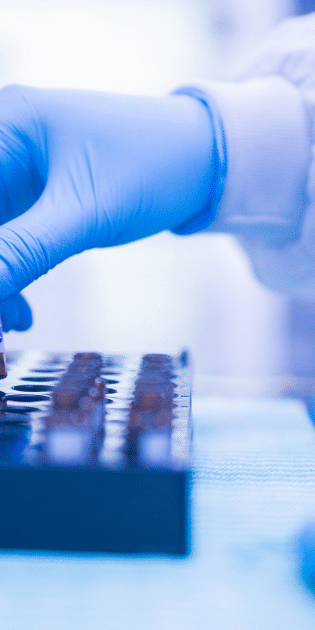Secure your healthcare products with compliant, intelligent traceability
Traceability in the pharmaceutical industry is crucial to guarantee the safety, efficacy and quality of products throughout their life cycle, from manufacturing to distribution and beyond. It involves setting up systems and procedures to track each product or batch of products through all stages of the supply chain.
Traceability solutions in the pharmaceutical environmenthelp to combat counterfeit drugs, ensure patient safety and comply with the sector's strict regulations. Technological advances, such as AI, blockchain, and IoT, offer new opportunities to improve traceability. However, they require close collaboration between manufacturers, distributors, regulatory authorities and traceability solution integrators to be fully exploited.
Pharmaceutical traceability remains a constantly evolving field, responding to new threats, regulatory requirements and technological advances, while aiming for the ultimate goal of protecting public health.

Focus on the GS1 UDI Standard
The UDI (Unique Device Identification) standard developed by GS1 is a universal coding system. It is used to uniquely identify and track medical devices throughout their lifecycle, from manufacture to patient use. The UDI standard facilitates the interoperability of healthcare information systems. This standard aims to improve traceability, patient safety and medical device management by facilitatingidentification and data collection.
Main goals
- Traceability of medical devices
- Patient safety
- Managing product recalls
- Optimization of inventory management
Key components of the UDI standard
- Device Identification Number (DI)
- Device Data (DDI)
- UDI marking
- UDI Database
Benefits and impact
- Improved patient safety
- Strengthening traceability
- Regulatory conformity
- Optimized inventory management
Our solutions for pharmaceutical traceability
Unitary identification and serialization
- Technologies used: barcodes, Datamatrix, RFID.
- Benefits: precise product tracking, anti-counterfeiting measures, compliance with regulations such as Directive 2011/62/EU.
Monitoring storage and transport conditions
- Technologies used: IoT sensors, data loggers.
- Benefits: real-time monitoring of temperature, humidity and other critical parameters to guarantee product integrity.
Integration with your existing systems
- Compatibility: ERP, MES, WMS.
- Benefits: data centralization, process automation, improved responsiveness to product recalls.
Our experts are at your disposal to study your specific needs
Let’s discuss your regulatory, logistical or operational challenges.
Concrete benefits
Regulatory compliance: compliance with current standards, such as Good Manufacturing Practices (GMP)
Increased safety: reduced risk of counterfeiting and distribution of non-compliant products
Operational efficiency: optimize production and distribution processes through better visibility of product flows
Why choose CIPAM?
30+ years' experience in the field
Over 400 sites equipped in France and Europe
A global approach: audit, equipment, software, integration
Long-term support (maintenance, upgrades, support)
A clear objective: to help you make the most of every solution deployed
Ongoing technology watch
Our experts are available to assess your specific needs and offer tailored solutions.
Let’s discuss your regulatory, logistical or operational challenges.
Focus on Qi/Qo/Qp
In the pharmaceutical sector, as in other regulated industries such as biotechnology or medical devices, the concepts of Installation Qualification (IQ), Operational Qualification (OQ) and Performance Qualification (PQ) are crucial to ensuring that equipment and systems installed, operate and perform in accordance with pre-established requirements.
Achieving IQ, OQ and PQ qualifications is essential to:
- Ensure compliance with international regulations and quality standards.
- Minimize the risk of equipment failure, which can affect product quality and patient safety.
- Provide documentation proving that equipment and systems are installed and functioning properly, facilitating regulatory audits.
In summary, the IQ/OQ/PQ process is a key element of validation practices in thepharmaceutical and relatedindustries, ensuring that equipment and systems are not only capable of producing high-quality products, but also comply with stringent regulatory requirements.
Focus on NiceLabel software
NiceLabel is software for label design and management of label printing systems. Widely used in a variety of industries, it enables companies to create customized labels quickly and easily, while complying with regulatory standards and industry-specific requirements.
Main features
Label design
- Simplified and accessible user interface
- Compatible with a wide range of barcodes and QR Codes
- Integration of variable data: databases, Excel sheets, ERP systems, to automate label printing.
Label print management
- Centralized printing: allowing you to control printers distributed across several sites.
- Security and control: advanced access control and auditing features ensure that only authorized users can design, modify or print labels.
Regulatory conformity
- Pre-designed templates: library of label templates compliant with international regulations, reducing the risk of errors and facilitating compliance.
- Label management: Effective management of label versions and revisions to comply with regulatory requirements for documentation and traceability.
- 21 CFR PART 11: U.S. Food and Drug Administration (FDA): ensure the integrity, confidentiality and availability of electronic records, enable the use of electronic signatures as the legal equivalent of handwritten signatures, promote the adoption of electronic technologies in the pharmaceutical industry and other regulated sectors.
Benefits for regulated industries
- Security and compliance
- Efficiency and cost reduction
- Flexibility and scalability
NiceLabel is a robust and flexible solution for label design and management, offering significant benefits in terms of regulatory compliance, operational efficiency and quality control. Its adoption in regulated industries, such as pharmaceuticals, can significantly help minimize the risk of non-compliance, while optimizing production and distribution processes.